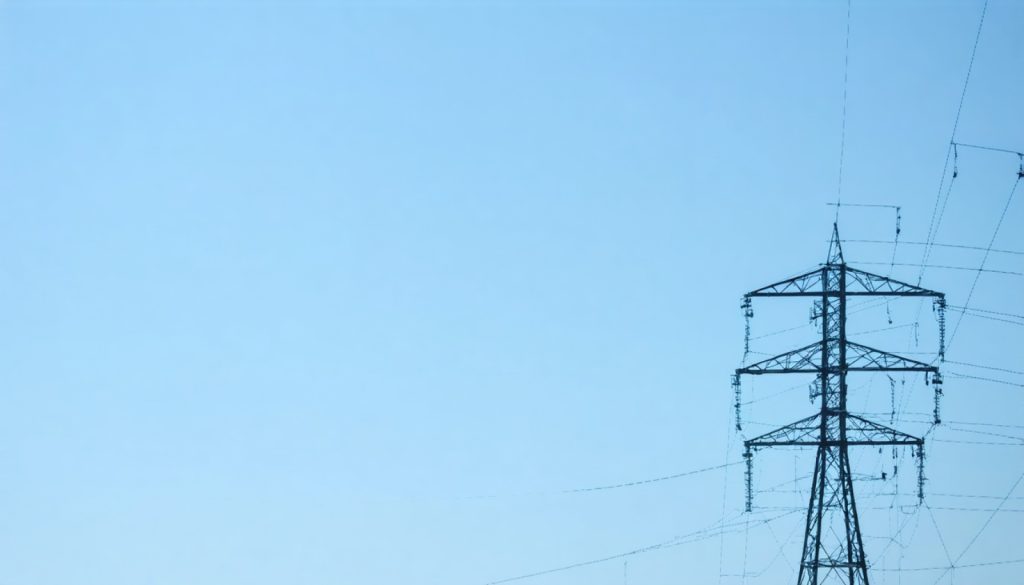
- Key technology products, including smartphones and laptops, are temporarily exempt from proposed U.S. tariffs, easing potential financial strain on consumers and tech firms like Apple.
- The tech market avoids upheaval as tariff exemptions help maintain stable pricing on popular electronics.
- Hacked crosswalk buttons in California highlight vulnerabilities in urban infrastructure, using voices mimicking Elon Musk and Mark Zuckerberg.
- Rivian’s American manufacturing and Tesla’s new affordable Model Y demonstrate strategic tariff resilience in the automotive sector, aligning with global ambitions.
- Investment in AI by companies like Nvidia and Alphabet is accelerating, with projects like Google’s DeepMind exploring innovative fields, including dolphin communication.
- Bill Gates envisions AI addressing career shortages, prompting society to rethink work and productivity.
- Tariffs and exemptions influence broader digital trends, impacting innovation and consumer experiences.
In a surprising twist, the latest announcement from U.S. Customs and Border Protection has consumers and tech insiders buzzing. A range of popular technology products, notably smartphones, laptops, and critical computing components, have been granted a reprieve from the heavy tariffs originally proposed by the Trump administration. By strategically excluding these electronics from the punitive levies aimed primarily at Chinese imports, the U.S. economy sidesteps turmoil in the tech market—at least temporarily.
Picture a world where your next smartphone or laptop costs up to 25% more. This is the near-reality from which American consumers are now shielded. As one strolls through bustling tech stores or browses online aisles, the economic relief is palpable. America’s tech giants, like Apple, have narrowly escaped an economic tempest, potentially sparing consumers from bearing the financial weight of trade disputes simmering beneath global power dynamics.
Across town, a different kind of intrigue emerges as wifi-capable crosswalk buttons in several California cities invaded pedestrians’ daily routines with uncanny voices eerily echoing Elon Musk and Mark Zuckerberg. The hacking of these devices serves as a mischievous yet stark reminder of the vulnerabilities lurking in interconnected urban infrastructures.
Meanwhile, in the automotive sector, Rivian claims an American-centric manufacturing ethos, effectively making it resilient against the tariffs impacting the auto industry. Rivian’s strategic supply chain is hardly an accident; it’s a calculated maneuver during these turbulent economic times. Similarly, Tesla’s release of a new, cost-effective version of the long-range Model Y signals a move to cushion consumers from financial burdens while fueling anticipation, especially as a Model Y was spotted on Indian roads—a marker of Tesla’s global ambitions.
Yet, it’s not all about dodging tariffs or encountering electronic pranks. In the vibrant realm of technology, investment in AI continues to accelerate. Nvidia and Alphabet are channeling funds into pioneering AI ventures, while Google’s DeepMind embarks on an oceanic expedition to unlock the secrets of dolphin conversations. Meanwhile, tech visionary Bill Gates posits a future where AI alleviates career shortages, urging society to reconsider traditional notions of work and productivity.
As innovations spiral onward, tariffs, too, seem to ripple through every corner of the digital landscape. Each exemption or levy carries weight beyond mere economics—affecting innovation, creating ripples in corporate strategies, and even touching the consumer at sidewalks and online carts. The key takeaway? Beneath the surface of trade and technology, lies a world of interconnected stories that shape the devices that power our lives and the trends that guide tomorrow’s innovations.
Exclusive: The Unseen Impact of Tariff Exemptions on the Tech Industry
In a strategic turn, U.S. Customs and Border Protection has elected to exclude a series of pivotal technology items, from smartphones to laptops, from high tariffs initially proposed under the Trump administration. This decision temporarily shields the U.S. economy from significant disruptions in the tech market, ensuring consumers avoid a potential 25% price hike on these essential gadgets. However, there’s more to the story unfolding behind the scenes.
How the Tariff Exemption Affects the U.S. Economy
The reprieve from these tariffs provides immediate economic relief and can foster investment in the tech industry by reducing costs for both consumers and manufacturers. American tech companies, such as Apple, might redirect saved resources towards innovation and scaling production.
Strategic Advantages for American Tech Giants
1. Price Stability: With tariffs off the table, companies can maintain competitive pricing, crucial for customer retention and market expansion.
2. Resource Allocation: By avoiding significant tariff costs, companies like Apple and Dell can invest more heavily in R&D and sustainability initiatives.
3. Market Positioning: Maintaining lower prices while competitors face tariff impacts fortifies market share and strengthens brand loyalty.
Insights & Predictions
– Tariff Exceptions and Market Dynamics: In exempting these products from tariffs, the U.S. underscores the role of technology in economic growth and innovation. However, this is a temporary relief; future policy shifts could redefine this landscape.
– Long-term Industry Trends: The tech industry may see accelerated development of localized supply chains to mitigate risks from future trade uncertainties.
Real-World Applications: Companies Thriving Amidst Tariffs
– Rivian’s Manufacturing Strategy: Rivian’s focus on an American-centric manufacturing approach showcases how companies can strategically navigate global trade tensions, which can serve as a model for other industries.
– Tesla’s Global Reach: Tesla’s introduction of a cost-effective Model Y marks its intent to balance high-quality product offerings with affordability, potentially replicating this price-conscious strategy in untapped markets like India.
Controversies & Limitations
– Vulnerability of IoT Devices: The incident with wifi-capable crosswalk buttons in California highlights cybersecurity vulnerabilities in our connected infrastructure. This raises questions about privacy and the robustness of current protective measures.
– AI Advancements vs. Ethical Considerations: With companies like Nvidia and Google investing in AI, ethical debates surrounding AI oversight and data privacy grow progressively vital. Bill Gates’ insights about AI improving workforce shortages offer promise but require careful management to avoid societal disruption.
Actionable Recommendations
1. For Consumers: Stay informed about pricing trends and consider purchasing tech products during periods of tariff exemptions to maximize savings.
2. For Companies: Invest in strengthening cybersecurity measures for IoT devices to safeguard consumer trust and avoid manipulation like the recent hacking incidents.
3. For Investors: Consider exploring stocks in companies adopting resilient supply chain strategies or those actively investing in AI, as these are poised for growth amidst economic uncertainties.
In summary, while tariff exemptions have provided temporary respite, the tech industry continues to face challenges and opportunities on multiple fronts. From supply chain agility to continued cybersecurity enhancements, navigating this dynamic landscape requires strategic foresight.
Check out more updates on the tech landscape on the official websites of Apple and Tesla, or watch innovations unfold across the dynamic tech scene.



